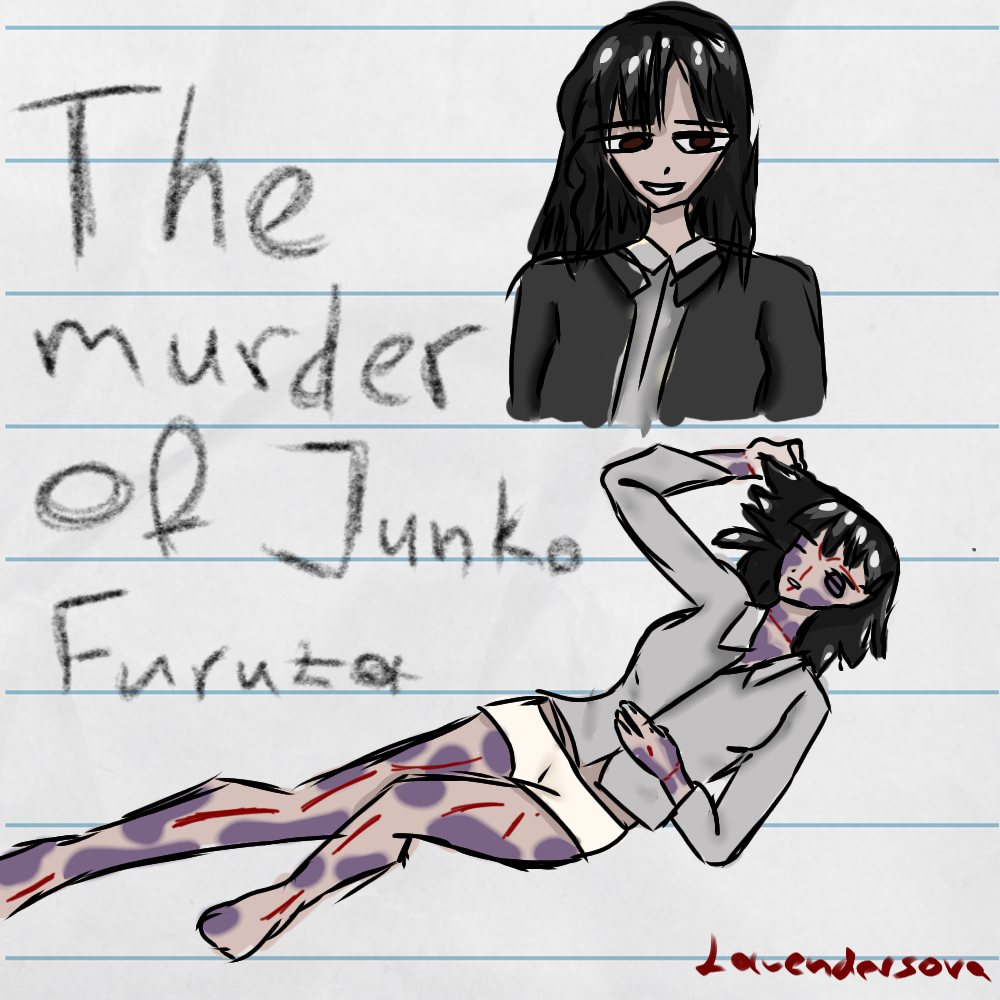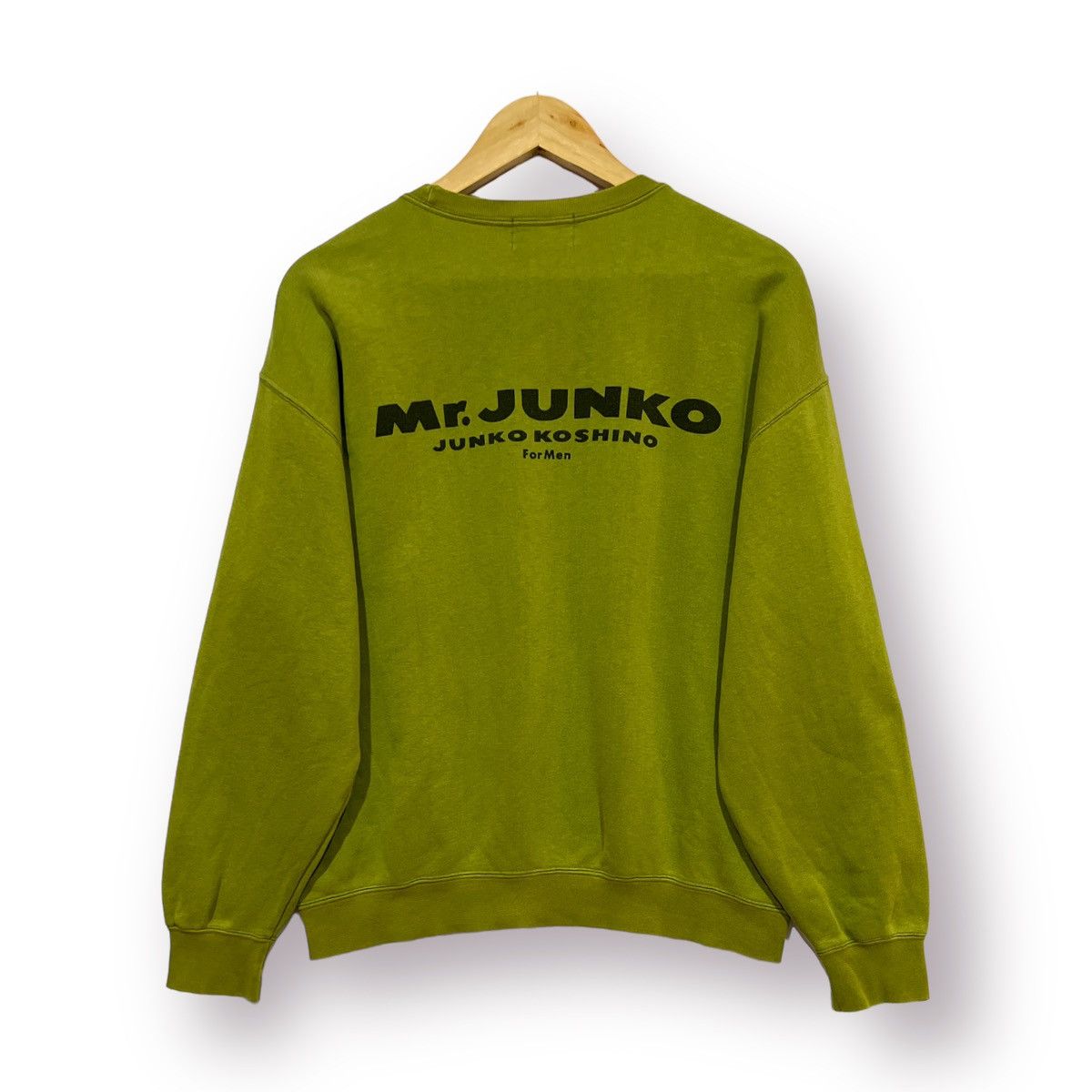Junko Furuta: The Dark Truth Behind A Tragic Story
So, here we are diving into one of the most chilling and haunting stories in modern Japanese history. The name Junko Furuta might not ring a bell at first, but trust me, her story is one that'll stick with you long after you're done reading. It's a tale of darkness, resilience, and the horrifying consequences of unchecked cruelty. Junko Furuta's tragedy has left an indelible mark on society, sparking conversations about justice, mental health, and the dangers lurking in the shadows of everyday life.
This ain't just another story; it's a deep dive into the darkest corners of human nature. The events surrounding Junko Furuta's life and death have shocked the world, raising questions about how far humanity can stray from its core values. But before we dive headfirst into the details, let's take a moment to reflect on why this story matters. It's not just about the past; it's about learning from it to prevent such horrors from ever happening again.
And hey, if you're wondering why we're talking about this today, it's simple. Junko Furuta's story serves as a grim reminder of the importance of empathy, understanding, and the need for stricter laws to protect innocent lives. This ain't just history; it's a lesson for all of us. Let's get into it.
Biography: Who Was Junko Furuta?
The Early Life of Junko Furuta
Let's rewind to the beginning. Junko Furuta was born on July 12, 1967, in Kobe, Japan. Growing up in a modest family, she was your typical teenager with dreams, aspirations, and a bright future ahead of her. Little did anyone know that her life would take such a tragic turn. Junko attended high school in Kobe, where she excelled academically and was well-liked by her peers.
Here's a glimpse into her early life:
| Full Name | Junko Furuta |
|---|---|
| Date of Birth | July 12, 1967 |
| Place of Birth | Kobe, Japan |
| Education | High school student in Kobe |
| Hobbies | Reading, music, and spending time with friends |
The Tragic Event: What Happened to Junko Furuta?
The Day Everything Changed
On November 25, 1988, everything changed for Junko Furuta. That fateful day, she attended a party with some classmates. What started as a casual evening turned into a nightmare when four male classmates lured her into a trap. Instead of returning home safely, Junko was kidnapped, taken to an abandoned building, and subjected to unimaginable horrors.
For over a month, she was held captive, tortured, and repeatedly assaulted by her captors. The details of her ordeal are too gruesome to recount fully, but what stands out is the sheer brutality and lack of humanity displayed by her abusers. This case became one of the most infamous in Japanese history, often referred to as the "Ichinomiya Case."
The Aftermath: Justice and Closure
The Arrest and Trial
On January 4, 1989, Junko Furuta's lifeless body was discovered in a plastic bag near a river in Ichinomiya. The news sent shockwaves across Japan, and the police launched a massive investigation. Eventually, the four perpetrators were arrested and brought to justice. Three of them were sentenced to life in prison, while the fourth, the ringleader, was sentenced to death.
This case highlighted the need for stricter laws and better enforcement mechanisms in Japan. It also sparked debates about the death penalty and the psychological impact of such crimes on society.
Understanding the Psychology Behind the Crime
What Drives Such Brutality?
Psychologists and criminologists have long debated what drives individuals to commit such heinous acts. In the case of Junko Furuta, the perpetrators were young men with no prior criminal records. So, what went wrong? Studies suggest that factors like peer pressure, lack of moral guidance, and exposure to violent media can contribute to such behavior.
- Lack of empathy
- Influence of toxic masculinity
- Failure of the educational system to address mental health
The Impact on Society
How Junko's Story Changed Japan
Junko Furuta's tragedy had a profound impact on Japanese society. It led to increased awareness about the dangers of unchecked violence and the importance of mental health education in schools. The case also prompted changes in the legal system, with lawmakers pushing for stricter penalties for violent crimes.
Moreover, it sparked conversations about the role of media in shaping young minds and the need for parents and educators to be more vigilant about the content their children consume.
Lessons Learned: Preventing Future Tragedies
What Can We Do?
So, what can we do to prevent such tragedies from happening again? Here are a few key takeaways:
- Strengthening laws and enforcement mechanisms
- Promoting mental health awareness and education
- Encouraging open conversations about violence and its consequences
- Providing support systems for victims and their families
Remembering Junko: Keeping Her Legacy Alive
Why We Should Never Forget
Remembering Junko Furuta isn't just about acknowledging her tragic death; it's about honoring her life and the lessons her story teaches us. By keeping her memory alive, we ensure that her suffering wasn't in vain and that future generations learn from the mistakes of the past.
Her story serves as a powerful reminder of the importance of empathy, kindness, and the need for a society that values human life above all else.
Data and Statistics: The Broader Picture
Understanding the Numbers
According to the World Health Organization, violence against women and children remains a significant global issue. In Japan alone, reports of domestic violence and sexual assault have been on the rise in recent years. While the numbers might seem overwhelming, they also highlight the urgent need for action.
Here are some key statistics:
- 1 in 3 women worldwide experience physical or sexual violence
- Approximately 1.8 million cases of domestic violence are reported annually in Japan
- Only 30% of victims seek help or report the crime
Final Thoughts: Reflecting on Junko's Legacy
As we wrap up this heart-wrenching story, let's take a moment to reflect on what we've learned. Junko Furuta's tragedy is a stark reminder of the fragility of life and the importance of protecting the vulnerable among us. Her story has touched countless lives and continues to inspire change around the world.
So, what can you do? Start by educating yourself and others about the issues surrounding violence and mental health. Speak up when you see injustice, and support organizations working to make the world a safer place. Together, we can honor Junko's memory by building a better future for all.
And hey, if you found this article helpful, don't forget to share it with your friends and family. The more we talk about these issues, the closer we get to creating a world where stories like Junko's become a thing of the past. Let's make it happen.
Table of Contents
- Biography: Who Was Junko Furuta?
- The Tragic Event: What Happened to Junko Furuta?
- The Aftermath: Justice and Closure
- Understanding the Psychology Behind the Crime
- The Impact on Society
- Lessons Learned: Preventing Future Tragedies
- Remembering Junko: Keeping Her Legacy Alive
- Data and Statistics: The Broader Picture
- Final Thoughts: Reflecting on Junko's Legacy


